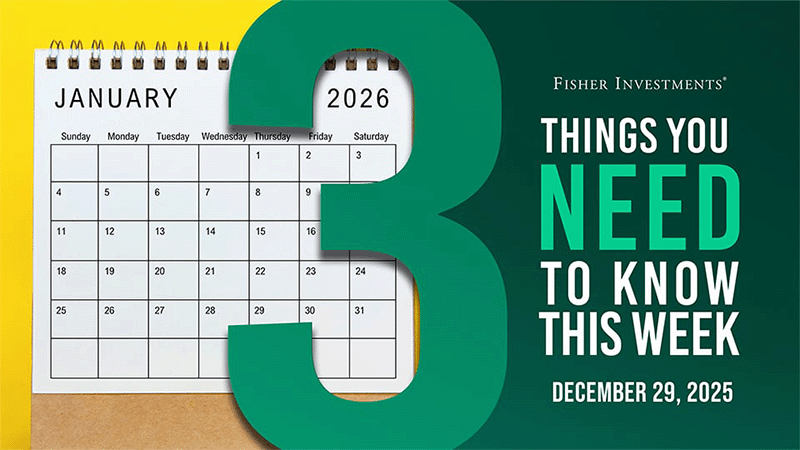Personal Wealth Management /
Gut Check
More often than not, investors’ “gut” feelings get in the way of their portfolio decisions. Here are some tricks to prevent investing indigestion.
What’s the secret to investing success? In my opinion, it’s two-fold. Investors first need a good starting point: Review your goals, objectives and how long your assets will need to work for you—then construct your portfolio accordingly. No simple task, but it gets harder! (No one said investing is easy.) When markets start to really move—up or down—it’s easy to lose confidence in your portfolio’s setup. Then, staying disciplined is key.
Most everyone knows to carefully vet portfolio decisions before acting on them and not to fret short-term volatility. But knowing something isn’t the same as doing it. With any number of distractions out there—the media, friends, family, fear, greed, etc.—when markets change direction, it’s easy to throw investing strategies out the window in favor of “gut feelings.” But guts are fallible, emotional, backward-looking (brainless, gross)—leading to irrational decisions that rarely do portfolios good.
If this sounds familiar, you’re not alone—and I can help! An investingchecklist can help keep you on track in times of doubt ... heart pounding ... rumbly tummies. It’ll force you to critically consider portfolio decisions and hopefully help head off some bad ones. You could even use it retrospectively—to see why a certain decision hurt when you thought it’d help—in an effort to avoid making the same mistake (over and over) again. Following are some items to consider when making portfolio decisions—to help keep cool-headed and consistent, even when your gut’s calling to do something, anything:
Asset allocation
- What assets currently make up your portfolio, and why?
- Has one asset class recently outperformed others, and is that why you own it?
- Do you own a certain percentage of stocks or bonds because it’s comfy? Or have you critically assessed your portfolio’s risk/return tradeoffs and how those square with your goals, needs and time horizon?
- And the reverse: If greed is the bugaboo-du-jour and you’re considering ditching the laggards, ask yourself why it was there in the first place. It may be this function wasn’t performance in the first place.
Stock picking
- You’re eyeing a stock to buy. Do you like it because it’s on a tear? Or is it on a downswing and you think it has to go back up? If either answer is yes, you could be trading on price movement—a classic mistake.
- How familiar are you with the company’s fundamentals? What are its valuations? Recent and expected earnings?
- How clean is its balance sheet? Does the business have strong cash flow, revenues and manageable costs?
- What do you know about the firm’s officers, board or other major shareholders? What about its business model? Is it equipped to fare well in the coming business environment?
- If you want to sell a stock that’s recently stunk, are you trading because it’s down? Have you checked whether something fundamentally changed in the business or its future earnings potential?
- If you want to sell a stock that’s flying, is it because you assume it’ll top out soon? Momentum will fade? Have you investigated whether its fundamentals support future earnings growth?
- How does the stock fit into your overall portfolio? What sector or country is it in and how much of that do you own?
- If you’re considering a mutual fund, is it because it’s a hot recent performer? Have you considered fees or the manager’s tenure and track record? Is the current manager the same individual who delivered the advertised returns?
Market Timing
- Are you buying or selling according to a seasonal adage about market performance: Like Selling in May, following the January Effect, fearing Financial Hurricane Season or buying the Santa Claus Rally?
- If you want to liquidate after stocks have taken a quick, steep drop—in hopes of avoiding further losses—how will you know when to buy back in? What if stocks unexpectedly rose in the meantime? Would you run the risk of selling low and buying high?
- Do you expect a brief drop in the market soon? Are you selling to avoid it? How do you know for sure exactly when it will start or end? Riding out short-term corrections usually hurts less in the long run.
Strategy/Management
- What is the media saying about the economy? Does the data support it—or is there a divergence? What have markets been broadly doing as a result? (Careful not to trade contrarily!)
- Are you making portfolio decisions based on widely known information—widely discussed fears or events that already happened?
- Have your goals and objectives changed?
- Are you considering portfolio shifts because your weightings need rebalancing or because your long-term forecast has changed? Or are your nerves getting the best of you?
- What determines your long-term forecast—how much do you let short-term jitters influence that?
- There is no such thing as a risk-free investment decision. (Said differently, risk-on and risk-off isn’t real and has no meaning.) So what risks—volatility, inflation, longevity, interest rate, reinvestment, credit—are you taking by making your choice? What risks are you trying to mitigate?
Reviewing these when considering a potential trade or portfolio shift could be the difference between eventually having your investments when you need them most and running out of money in retirement. It also can help you avoid critical behavioral errors! Without even realizing it, most investors trade on the assumption past performance foretells future returns. Investors know, intuitively, this belief is wrong—but it’s only natural to feel recent market trends will continue into the future. Trading on short-term performance to improve short-term performance, however, can hurt returns long term.
It’s super easy to forget about the long term when you’re watching one hot category or stock fly high—or stocks reel during a correction. Humans can be a little short-sighted. Yet fire-in-the-pants investors looking to score big by chasing hot styles and stocks (or trying to "stop the bleeding" by "selling the losers") risk missing their much more important long-term goals and objectives. Despite what many in the financial media and your day-trading Uncle Jim say, investing is not a day trip. It’s a lifelong journey requiring an appropriate plan and the discipline to stay on task. Even if you do end up with one or two big payoffs from risky moves, you could lose more by continually letting your emotions run your portfolio. Remember: Your gut is for digestion, an icky process with no relationship to money or your goals. Hence these questions: designed to help keep your gut in check and let you focus on where you want to go over time.
If you would like to contact the editors responsible for this article, please message MarketMinder directly.
*The content contained in this article represents only the opinions and viewpoints of the Fisher Investments editorial staff.
Get a weekly roundup of our market insights
Sign up for our weekly e-mail newsletter.

You Imagine Your Future. We Help You Get There.
Are you ready to start your journey to a better financial future?

Where Might the Market Go Next?
Confidently tackle the market’s ups and downs with independent research and analysis that tells you where we think stocks are headed—and why.





